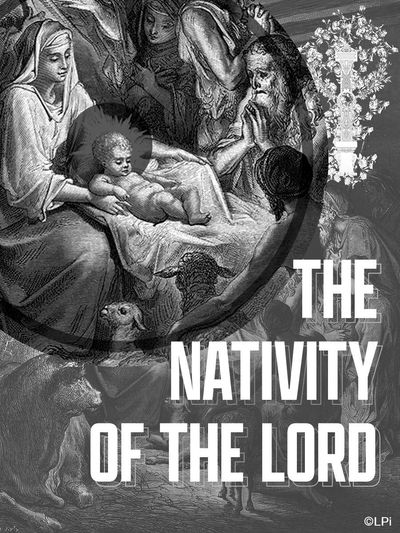Posted by John Derrig
It is a happy coincidence that the St. Gall Men's Study Group began reading paragraphs in the Catechism of the Catholic Church about the Incarnation shortly before the Season of Advent began.
We had scarely begun our study when we ran into paragraph 460 in the Catechism. This paragraph led to some challenging and stimulating discussion. The paragraph begins with this statement:
"The Word became flesh to make us partakers in the divine nature." (2 pet 1:4)
The Catechism then elaborates on this statement by referring to various doctors of the Church:
Irenaeus: "For this is why the Word became man, and the Son of God became the Son of Man: so that man, by entering into communion with the Word and thus receiving divine sonship, might become a son of God."
Athanasius: "For the Son of God became man so that we might become God."
Thomas Aquinas: "The only-begotten Son of God, wanting to make us sharers in his divinity, assumed our nature, so that he, made man, might make men gods."
Members of our Men's Group unanimously agreed: "We are NOT God!!" But what, then, might the Catechism mean? The conversation among our Men’s Group was very fun and invigorating. Here are some of my conclusions:
During the Advent Season, we prepare for the coming of Jesus. We normally think of two comings: when Jesus was born in Bethlehem (Lk 1:26-38) and when Jesus comes again at the end of the age (Mt 25:31-46).
There is another coming, however, which is most meaningful for me: when Jesus is born in my heart — each day in general and at each Eucharist in particular.
This commentary on the Incarnation from Pope Francis seems helpful:
What took place most singularly in the Virgin Mary also takes place within us, spiritually, when we receive the word of God with a good and sincere heart and put it into practice. It is as if God takes flesh within us; he comes to dwell in us, for he dwells in all who love him and keep his word.
Do we think that Jesus’ incarnation is simply a past event that has nothing to do with us personally? Believing in Jesus means giving him our flesh with the humility and courage of Mary, so that he can continue to dwell in our midst. It means giving him our hands, to caress the little ones and the poor; our feet, to go forth and meet our brothers and sisters; our arms, to hold up the weak and to work in the Lord’s vineyard; our minds, to think and act in the light of the Gospel; and especially to offer our hearts to love and to make choices in accordance with God’s will. All this happens thanks to the working of the Holy Spirit. And in this way we become instruments in God’s hands, so that Jesus can act in the world through us.
The Church of Mercy, Pope Francis, Chapter 38.
This statement from Bishop Robert Barron is also powerful for me during this Advent season:
Now the Gospel writers agree that the Kingdom of God, the enfleshment of the divine life in human form, the Incarnation, is not something to be admired from the outside, but rather an energy in which to participate. It was the great medieval mystic Meister Eckhart who commented that the Incarnation of the Word in Jesus of Nazareth long ago is of no interest and importance unless that same word becomes incarnate in us today.
And Now I See, Robert Barron, page 4.


For what greater grace could God have made to dawn on us than to make his only Son become the son of man, so that a son of man might in his turn become the son of God?
(Sermo 185: PL 38, 997-999)